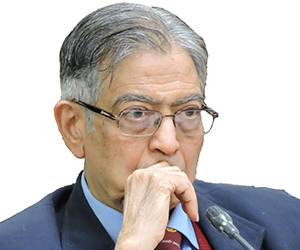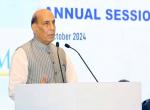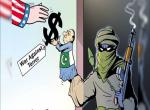The Task Force appointed by the UPA Government for national security review is unlikely to produce a report that will carry weight and be accepted for implementation. Its limited remit and the fact that it comprises retired officials who carry no clout make the much-needed review a non-starter. The Government should have made a sincere effort to bring the security reform process initiated by the Group of Ministers in 2001 back on track.
The appointment of a Task Force by the Union Government for national security review is commendable. It does not come a day too soon as there have been too many security-related goof-ups in the recent past. Indeed, the Group of Ministers which had undertaken the first ever holistic review of India’s national security in 2001 had called for a further review after five years — that is, in 2006.
But the Task Force is handicapped as it is primarily made up of retired officials. Accordingly, it will have limited clout within the system. Certainly far less than that was enjoyed by the Group of Ministers. Its recommendations will, therefore, not automatically be endorsed by the system, failing which they would be either rejected or simply not implemented. Conversely, anything recommended by the Group of Ministers carried the stamp of authority and all its 340 recommendations, barring those pertaining to the Chief of Defence Staff, were accepted by the Cabinet Committee for Security.
The terms of reference of the Task Force, moreover, lack clarity as compared to those of the Group of Ministers. While the latter was mandated in no uncertain terms to “review the national security system in its entirety”, the remit of the Task Force extends only to a review of “the existing processes, procedures and practices in the national security system and suggest measures where necessary for strengthening of the national security apparatus and in non-conventional areas having a bearing on the overall security situation”. This is less than holistic.
Taken at face value such language would require the Task Force to focus essentially on the operation of the national security system and not on the fine details of shortfalls in equipment, logistics, training, professionalism, etc. The effective management of security, however, demands that attention be paid to all aspects of it, both the software and hardware. Failure in any area can critically compromise the entire system.
It is, of course, possible that through creative interpretation the Task Force may decide to look at some issues which go beyond the “processes, procedures and practices” of the national security system. But this would amount to cherry-picking and would not entail a comprehensive security review. Moreover, anything approaching a meaningful and holistic review would be beyond the capabilities of the Task Force as presently constituted.
In this context, it would be relevant to recall that the Group of Ministers was assisted by four Task Forces for higher defence management, intelligence, internal security, and border management with an average of about eight members each. Each Task Force was chaired by a very eminent expert with impeccable domain knowledge who was selected solely on merit and not because he was close to the Government of the day.
Indeed, one of the chairmen personally expressed surprise to me at his appointment as he had, while dealing with the Babri Masjid issue in the 1990s, advocated proactive steps to prevent its demolition. The four chairmen, in turn, selected the members of their respective Task Forces on the basis of their specialised knowledge in the area.
Thus, while the Group of Ministers was backed by over 30 leading specialists, along with the concerned administrative Ministries, the present Task Force has only 14 members and some of them cannot be said to have much domain expertise. This expertise deficit will inevitably affect the credibility of the Task Force’s recommendations.
The most that should have been required of this Task Force was to undertake an evaluation of the progress in the implementation of the reforms recommended by the Group of Ministers, detailing those that had been implemented, those that had not been implemented and the reasons therefore, and what further action was required in order to ensure complete implementation.
The Task Force could also have been required to have come up with suggestions on areas of shortfall in the national security system and recommendations on the setting of expert groups to suggest remedial action in the matter. Such an agenda would have helped in bringing the security reform process initiated by the Group of Ministers in 2001 back on track.
Had the Government been really serious about toning up the security system it would have appointed another Group of Ministers for this purpose with the mandate as suggested by the earlier Group of Ministers to take “stock of the progress achieved in the implementation of the recommendations approved, address areas of difficulty and chart out a plan of action for the future”.
The Government has, unfortunately, shied away from moving in this direction, perhaps because it feels that that this would amount to acknowledging that something worthwhile was done by the NDA Government on security. Such an acknowledgement would not in any way demean the UPA but would help pave the way for creating a national consensus on national security.
All the gaps in national security cannot be plugged in five or 10 years. This takes decades and viable systems can only be put in place through the support of successive regimes. The NDA Government understood this.
Soon after assuming charge as Secretary, National Security Council Secretariat, the then National Security Adviser candidly admitted to me that the longevity and efficacy of the new security systems and mechanisms being created by the NDA Government would inevitably depend on future Governments. If the latter did not show the same enthusiasm for them they would atrophy. Regrettably, this is precisely what has happened, in particular to the National Security Council Secretariat, the National Technical Research Organisation, the National Information Board, the Intelligence Coordination Group, etc.
Finally, it is hoped that in the interests of transparency the Government will make public the recommendations of the Task Force. This will follow the healthy precedent set by the NDA Government in making public both the Kargil Review Committee report and the Group of Minister’s report on “Reforming the National Security System.”
--------------------------------------------------------------
Published in The Pioneer Dated: 4th August, 2011










Post new comment